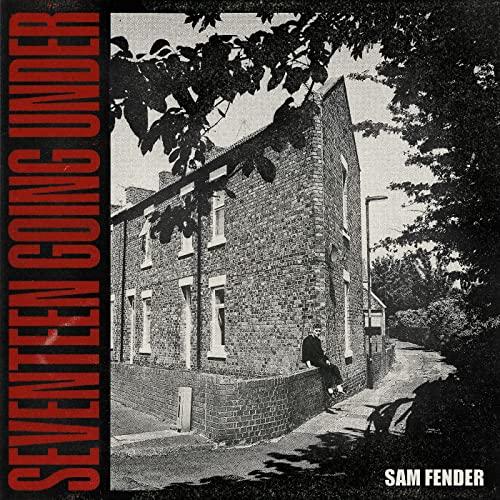Grand, sweeping romanticism with strong Celtic leanings is the order of the day lately, in a way it hasn’t been since the 1980s heyday of U2, Waterboys, Bruce Springsteen, Dexys and Simple Minds. The likes of Lewis Capaldi, Dermot Kennedy, Declan McKenna, Ed Sheeran in “Castle on the Hill” mode and Fontaines D.C. when they show their softer side are all taking yearning songs of big dreams colliding with small realities all the way to the bank. The Manic Street Preachers too have turned up the Van Morrison-ish swoon to 11 on their new album – and indeed The Waterboys’ Room to Roam and Dexys’ Too Rye Aye are both getting the mega-deluxe reissue treatment.
Squarely in the middle of all this sits Sam Fender. The Geordie singer-songwriter got rocketed to megastardom by 2019’s Hypersonic Missiles and embodies the aesthetic of grandiose yearning combined with rootsy, kitchen sink realism as much as any of the above. He’s generally a welcome presence in the pop world: he’s proud of his working class background, outspoken about class discrimination in the music industry and otherwise aware of the intersection between the personal and the political. His lyrics bristle with anarcho-punk level unvarnished fury that are a million miles from the self help homilies of the Coldplays of this world, plus he can really, really sing.
On his second album, he’s in fine voice, and the songs are a step up from Missiles. Throughout most of this record, though there’s all the big surging festival crescendos there’s also the kind of guitar clang that powered early Strokes and Kings of Leon and more recently Fontaines D.C., which lends it more urgency than the standard Coldplay-indebted indie-rock backing of its predecessor. Fender is introspective here, looking back to childhood and adolescence, addressing neglect, fighting, broken families and mental illness from a personal perspective – and the more he does this, the more he escapes from the conspiracist-leaning sloganeering he’s always been prone to, ironically the more politically compelling he gets.
His lyricism is blunt but occasional vignettes or phrases like “Straddle these rusted wheels and pedal through the gridlock” or “Comedy giants, penniless heroes, dead men at the bar, I’ve drank with them all” leap out. He certainly has a way with a hook, too, and fair belts them out. But, just as Lewis Capaldi has admitted he turns up the Springsteenian husk in his voice to meet the public demand for grit, it’s hard to escape the sense that the pull of the popularity of this kind of earnest “real music” might be denying us the full range of what Fender is capable of.
This is, after all, someone who grew up on the local hardcore techno-trance sound of Sunderland’s New Monkey nightclub as much as any indie bands, and whose voice, especially when things slow down as on the startlingly bleak “Mantra” sounds as much like a soul singer as a grunting rock dad. This record IS a step forward, and a solid statement from Fender – but it also hints how much more he could do if he really cut loose from the generic and made music even a tenth as unorthodox as his furious lyrics.















Add comment